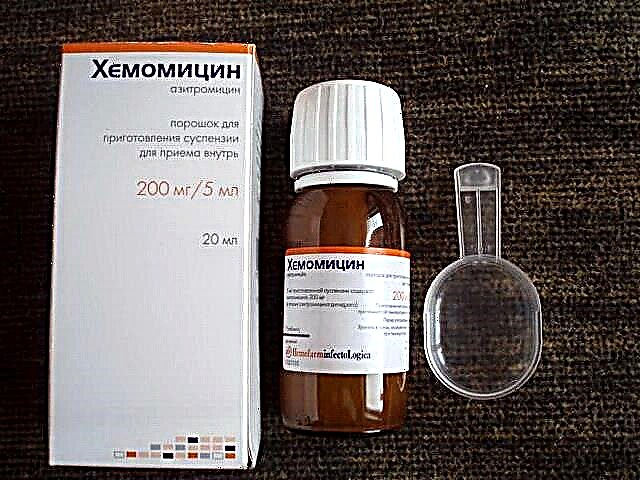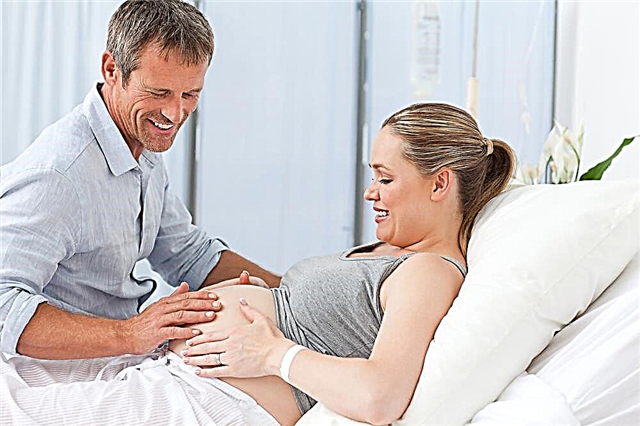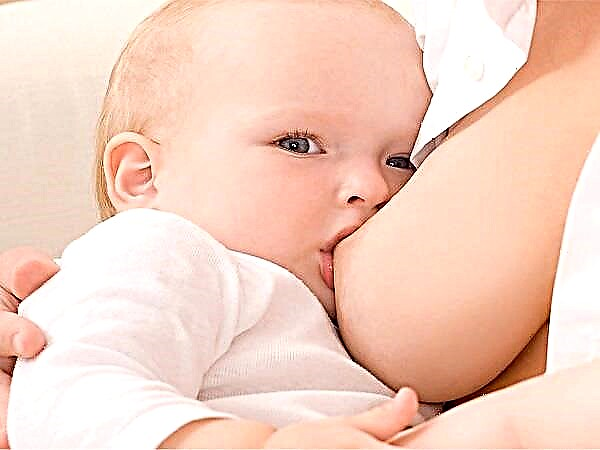
Many women experience hair loss after childbirth. And although everyone around them reassures that this will temporarily and gradually pass, hair loss worries new mothers and causes discomfort. This is especially true for the owners of luxurious hair, which the woman has always been proud of.

What is the reason for this?
Pregnancy and childbirth require the female body to mobilize all resources. All organs and systems work with maximum power, with the exception of immunity, which is in a depressed state of a pregnant woman. If immune defenses were not suppressed by hormones, immunity would simply destroy the fetus as a half genetically alien creature.
During pregnancy, a woman generously gives the child everything that he needs for growth and development. The baby draws calcium, iron, vitamins, oxygen from the mother's blood. But a woman's own reserves of nutrients are not unlimited and it is impossible to store the same calcium for future use, and therefore, after childbirth, the female body is faced not only with the need to live with a weakened immune status for some time, but also to replenish vitamin and mineral costs.
Breastfeeding complicates the situation somewhat: the child continues to take useful substances from the tired mother, and therefore various forms of vitamin deficiency can start precisely during lactation. Hair falls out for a combination of these two reasons.
The stronger the need of the female body for vitamins, the weaker her immunity, the more her hair climbs, which was luxurious and healthy a year ago.
But the problem would be easily solved if there were only two reasons. It would be enough to drink vitamins, rest and take immunostimulants to avoid hair problems. However, in practice, everything is much more complicated.

The hormonal background has a huge impact on the structure of a woman's hair. Everyone knows that during menstruation they do not perm and do not dye their hair - the effect can be unexpected. After childbirth, the postpartum woman undergoes global hormonal changes, the level of progesterone decreases, the level of estrogen, prolactin increases, and hair follicles are among the first to react to such changes.
The very process of childbirth is severe stress, the postpartum period is also a restless, nervous time: the newly-made mother is worried, does not get enough sleep, is worried, is in tension - and this is another reason for hair loss after the birth of a child.
This is followed by another reason - anesthesia. If epidural anesthesia was used during childbirth, general anesthesia was performed during caesarean section, then hair loss is aggravated by the destructive effect of muscle relaxants and analgesics on metabolic processes, including those occurring in the hair follicles and the hair shaft.
Lack of time to take care of yourself is another good reason. Have you seen a lot of newly-made mothers who have time to take care of the baby, and express milk, wash, cook, and tenderly greet her husband, and at the same time carry out hair care procedures?
When such a mom has an hour of time, she most likely prefers to spend it in a state of sleep in order to at least slightly compensate for chronic lack of sleep. And hair after childbirth needs special care, and when there is none, hair loss increases.

The tragedies of hair loss, of course, should not be done, but letting it go is also criminal negligence. Monitor the intensity of the dropout. 100 hairs a day is the norm and shouldn't be alarming.
If from 300 to 500 hairs fall out, this is a reason to visit a trichologist (a doctor who deals with hair problems and can identify the causes). To keep your hair beautiful, you need to make an effort on yourself and set aside at least half an hour a day in the busy schedule of a young mother to devote this time to hair.

How to choose remedies for treatment?
Given that the lactation period is a very crucial period, the mother should not resort to medication, which are usually used in the treatment of alopecia. Medicines easily pass into breast milk and go to the baby.
Postpartum hair loss is not a disease, and therefore does not require special drug treatment. Cases of true total alopecia (baldness) after childbirth are very rare.
Fortunately, the problem is quite easily solved without hormonal agents, anti-inflammatory drugs, immunomodulators, which are used in trichology. You can do simple rituals, choose the right hair cosmetics, and positive progress will already be noticeable.
Every day, while watching TV or before bed, take 10 minutes to massage your scalp with your fingers - this helps to improve blood circulation in the skin and induce blood flow to the hair follicles.

Buy a hypoallergenic shampoo and balm that matches your hair type (oily or dry, combination or brittle, etc.). Pay attention to the composition. The more preservatives and aromatic additives in the selected product, the worse. Therefore, it makes sense to use products from the line of medicinal cosmetics that are sold in pharmacies.
It will also be beneficial to take vitamins and iron supplements (95% of breastfeeding women have anemia after childbirth), but both should be chosen after consulting a doctor. Contact your therapist with this question or ask your pediatrician what vitamin preparations will not harm the baby if they are taken by a nursing mother.
Choosing vitamins
It is not necessary to choose vitamin complexes in tablets or capsules. You can apply vitamin preparations topically, that is, on the hair. For nursing mothers, this treatment is considered the safest. So, what vitamins does our hair need after pregnancy and childbirth:
- vitamin B 5;
- vitamin E;
- vitamins B 2 and B 3;
- vitamin A.
Panthenol (B5) can be purchased in ampoules in the form of an oil solution, as well as vitamins A and E. Vitamins B2 and B3 can be delivered to your body with food: they are found in chicken liver, eggs, buckwheat porridge, cauliflower and walnuts.
Calcium deficiency will help to eliminate milk, dairy products, cottage cheese, fresh herbs.
Oil solutions can be mixed and applied to damp scalp after washing. Do not forget to rub the vitamin mask into the skin with light massaging movements. You do not need to wash them off.
Multivitamins can only be drunk with the consent of a doctor.
Usually, drugs help restore vitamin deficiency after childbirth and during hepatitis B "Elevit", "Vitrum Prenatal", "Complivit Mom", "Alphabet of Mom's Health", "Pregnavit".
Safe ways from traditional medicine
Hair loss while breastfeeding is not just a problem for modern women. Ladies have faced this at all times, and when a braid to the waist was considered the main sign of female beauty, hair loss turned into a huge problem. That is why for centuries women have invented, tested and passed on to other generations traditional medicine recipes that will not harm the baby and help stop hair loss.
Masks made from raw chicken eggs have proven themselves very well. They can be used to wash your hair instead of shampoo. Milk serum is also widely used for hair treatment, which is used to wash and rinse hair. It is allowed to wash the hair with a decoction of burdock rhizomes.


If you have a little more free time and hair loss is very worrisome, you should try to make medicated hair masks.
Rye mask
Take rye bread, boil it with boiling water, let it brew, grind into a homogeneous mass and rub into the scalp. You can add a little decoction of nettle to the mask.
Do not forget that the mask is applied warm, after which the head is wrapped with a film and a towel and kept for about 15 minutes.
Rinse your hair and let it dry naturally, without force drying.

Oil mask
Take some olive oil and heat until warm, add a few drops of lavender, lemon and sage essential oils (all ingredients are sold at the pharmacy).
Apply a warm oil mixture to clean scalp after washing. Rub in and soak for about half an hour. After that, the hair must be washed again.

Onion
Raw onion gruel is an ancient and very effective remedy for combating hair loss. With moderate hair loss, the effect is very quick and impressive.
Grate raw onion or mince it. Mix with raw egg and apply to scalp. Onions cause local irritation, which results in blood flow to the hair follicles. Shedding slows down, new hair grows faster.
It is important to remember that masks are not done every day. It is enough to carry out such procedures 1-2 times a week. If you have a high tendency to allergies, you should first consult your doctor.
Recipes based on essential oils and honey can be harmful in this case. But you can find an alternative - rye bread, yeast, an egg are quite suitable for home treatment of hair condition.

Care features
After giving birth, it is important for a woman to fundamentally change the approach to her hair. Even if a lady used to paint her makeup once a month and did a perm, such procedures are contraindicated for breastfeeding due to the fact that they require the use of chemicals that easily penetrate through natural barriers into breast milk. In addition, the condition of the hair against the background of hormonal changes is such that dyeing and chemistry will only harm them.
Proper care will help stop the process of hair loss. Here are its basic principles.
- Do not curl your hair with a curling iron, do not dry it after washing with a hairdryer. Thermal exposure significantly impairs the quality of the hair shaft, and with weakened follicles, it generally leads to massive loss of hair. Dry naturally - dry themselves.
- Do not brush your hair when wet. Wait for the hair to dry. If you need curls for a special occasion, wind up with regular curlers.
- Do not use mousses, hairsprays, styling foams. Any chemical agents during this period have a detrimental effect on the elasticity of the hair shaft.
- You should not comb your hair with metal combs, no matter how beloved and good they are. Select only wood combs with large tooth clearances. It is important to comb your hair for longer than usual, as this stimulates blood flow to the hair follicles and improves the condition of the hair, gradually it stops falling out.
- You don't need to wash your hair every day: the natural lipid layer on the hair is very important for the health of the hair. Frequent washing disrupts the processes of lipid metabolism, so the hair becomes weak and brittle, or dry and brittle, or begins to become very greasy up to the appearance of seborrhea. It is enough to wash your hair 1-2 times a week.
- Choose your shampoo carefully. The product should be free of sulfates. Apply the shampoo from the ends of the hair upwards and massage the scalp for about three minutes before rinsing the composition off the hair.
- Avoid tight ponytails, buns, braids, or other hairstyles that put the hair under extreme tension. Maybe such hairstyles look beautiful, but they definitely violate the blood circulation of the scalp, which in case of physiological loss (and postpartum loss is physiological) can aggravate destructive processes.
Separately, I would like to say about the effect of stress on hair condition. We habitually underestimate our tiredness, anger, sadness, depressive thoughts. And in a state of stress, a woman produces more adrenaline and cortisone, and therefore not only the nutritional value of milk for the baby deteriorates, but also in the mother herself under the influence of stress hormones, the hair follicles shrink and narrow. The blood flows to them worse, and therefore without proper nutrition, the bulbs weaken, hair falls out.
There are known cases of baldness due to nervousness, and any trichologist will confirm that this is the pure truth. Therefore, it is important to try to get rid of stress. To do this, take time "for yourself" - read, sleep, walk, do something pleasant just for you.
Physical activity helps to get rid of stress hormones - gymnastics, cycling, swimming, homework.

Build your diet correctly. It should contain the maximum of useful and varied. Eliminate fatty, spicy, salty, spices, carbonated drinks, alcohol. Good for hair health:
- oatmeal, buckwheat, millet porridge;
- pumpkin, nuts, dried fruits;
- dairy products;
- fish, meat;
- vegetable oils (especially linseed and olive).

When taking care of hair, do not forget about the basic requirements for the diet of a nursing mother, because the nutrition must fully comply with them, since the child should receive everything he needs with his mother's milk for harmonious growth and development.
For more information on hair loss and treatments, see the next video.



